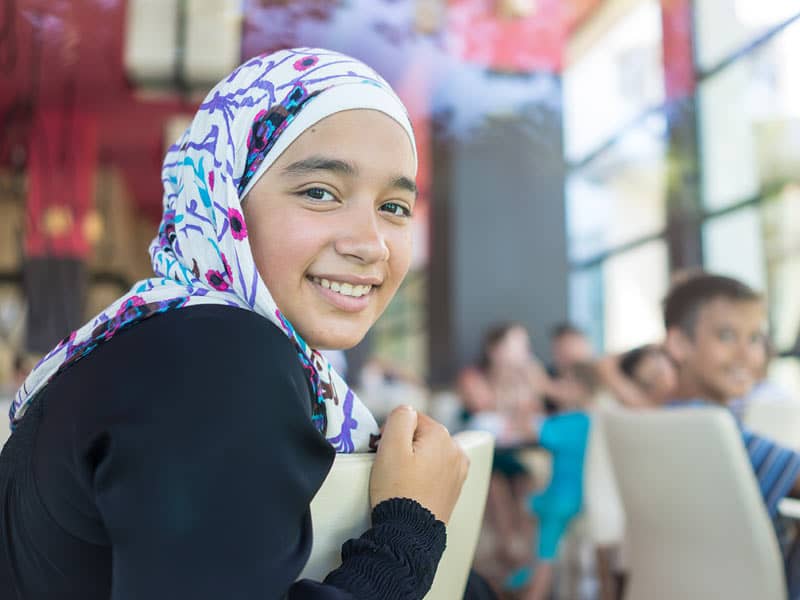And this is starting to happen. The day of the terrorist attacks, a group called Muslims Against Terrorism was born. It began as a website created by about two dozen young New York Muslims who, within the first week after the attacks, came together to reaffirm that, yes, they are all Americans--and, no, the terrorists are not Muslims. Now this network has attracted members from Los Angeles, Chicago, Cleveland, San Francisco, Michigan, Washington, and other American cities. The group has a simple message, with a simple goal: to teach Americans about Islam--real Islam.
One of my first reactions was that the name implied some Muslims are for terrorism. It seemed defensive, since anyone who knows anything about Islam would know that Islam is against terrorism. But Muslims Against Terrorism leaders say their audience is a largely unaware American public searching for answers. Oprah, The West Wing, and all kinds of media outlets, it seems, are tackling the question: What is Islam really about? These young Muslims believe they are in the best position to explain.
What is particularly interesting about the group is its makeup: young, professional, male and female, mostly in their 20s and early 30s, and from various racial and cultural backgrounds. They are Americans--with African-American, Sri Lankan, Anglo, Syrian, Egyptian, Pakistani, and Filipino roots. Men and women mix freely. Not all the women wear hijab, the traditional Muslim head covering. And most important is that this group of indigenous and second- and third- generation Muslims is concerned primarily with America rather than a distant homeland.
Muslims often talk about a rift between the African-American and immigrant communities. African-Americans focus more on local issues, and immigrant communities care more about problems overseas. In addition, many African-American Muslims came to Islam by way of the Nation of Islam and the black separatist movement of the 1960s. That history is completely different from the stories of immigrant Muslims.
But according to Asma Khan, 30, a lawyer and the new group's spokeswoman, young Muslims are determined to make this new struggle ethnically all-encompassing. Khan puts it this way: "Our religion has been hijacked by people who have no right to represent it."
Could this generation be the one that finally brings Islam into mainstream American culture?
Most Muslim-American organizations, however focused they are on the American scene, also maintain an eye on the Muslim world--the Palestinian territories, Pakistan, Kashmir, Chechnya, and the Balkans. And, often, the simple message of Islam gets lost in political causes.
"International] politics has made a mess of Islam," Khan says. "We are worried about the message of Islam because we have seen the 'message of Islam' used to justify horrific mass murder. And while this may have happened overseas, it never hit home before."
The message is being heard.
"People are inspired by the fact that we're taking Islam back. Volunteers are calling asking to help, asking if Christians can be involved," Khan says.
Pressure is often placed on Muslim organizations to take a strong stand against terrorism, particularly when it comes to political hot spots such as the Palestinian-Israeli conflict. But often such organizations, while not supportive of terrorist acts, have been careful not to criticize too harshly lest that disapproval be mistaken for opposition to all forms of resistance.
And so, a tragic episode in this country's new century may open new possibilities for real justice and for better understanding. A new American Muslim movement may finally have come into being.

